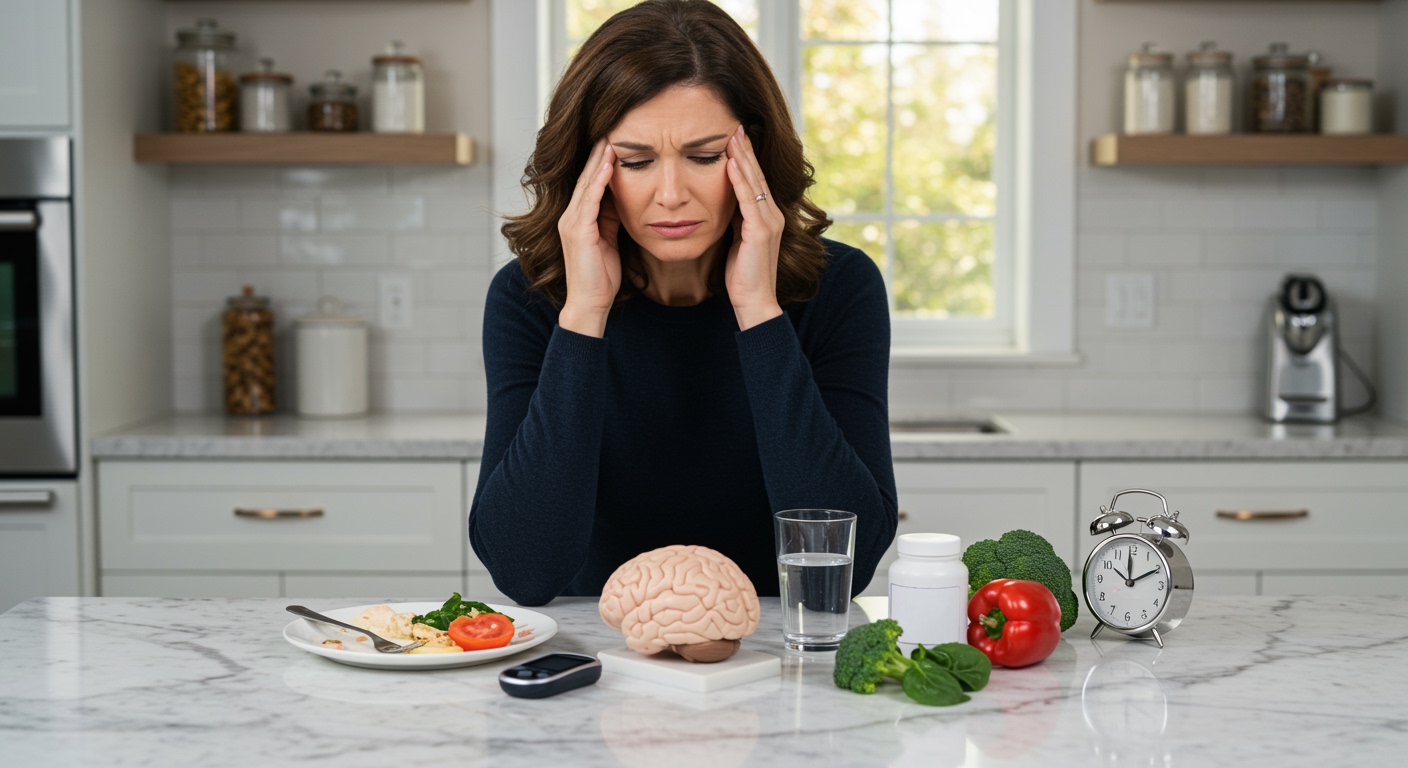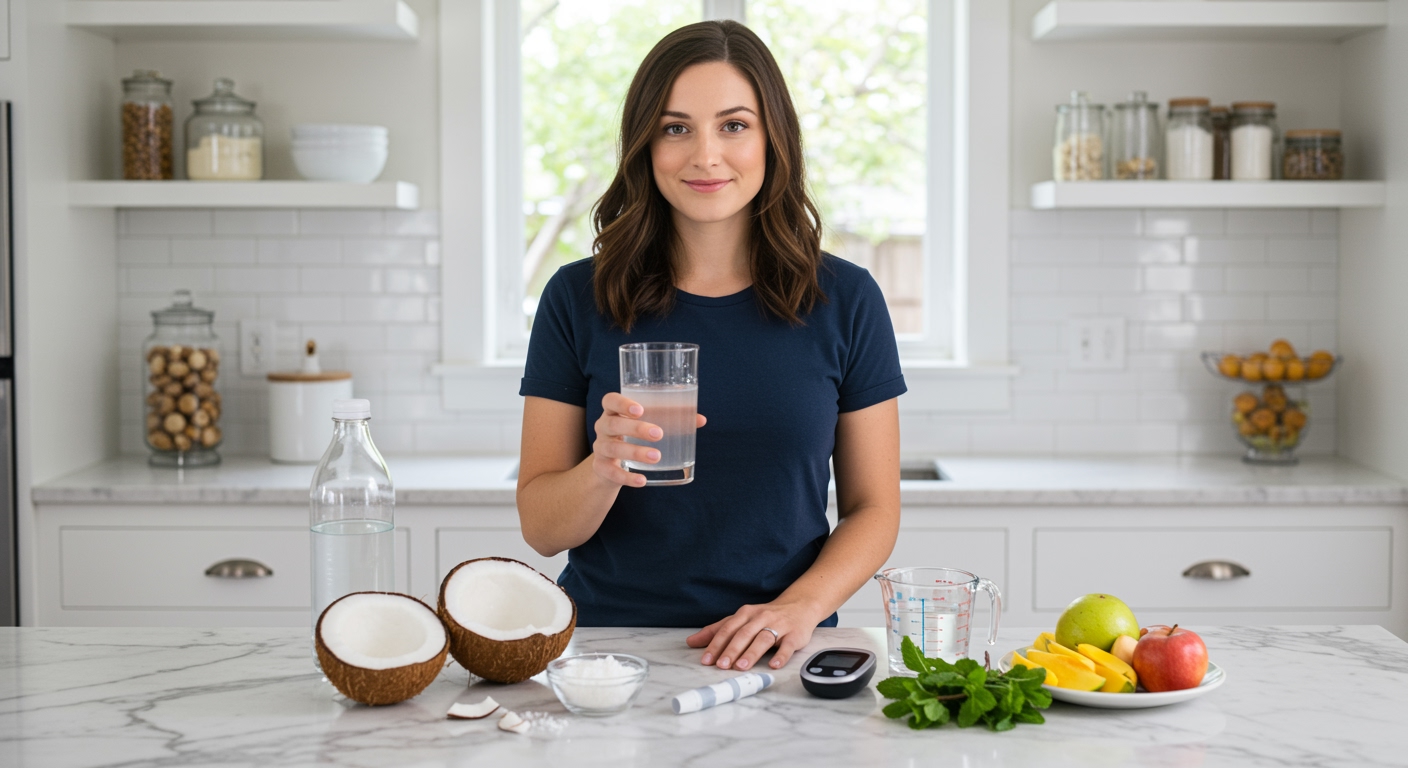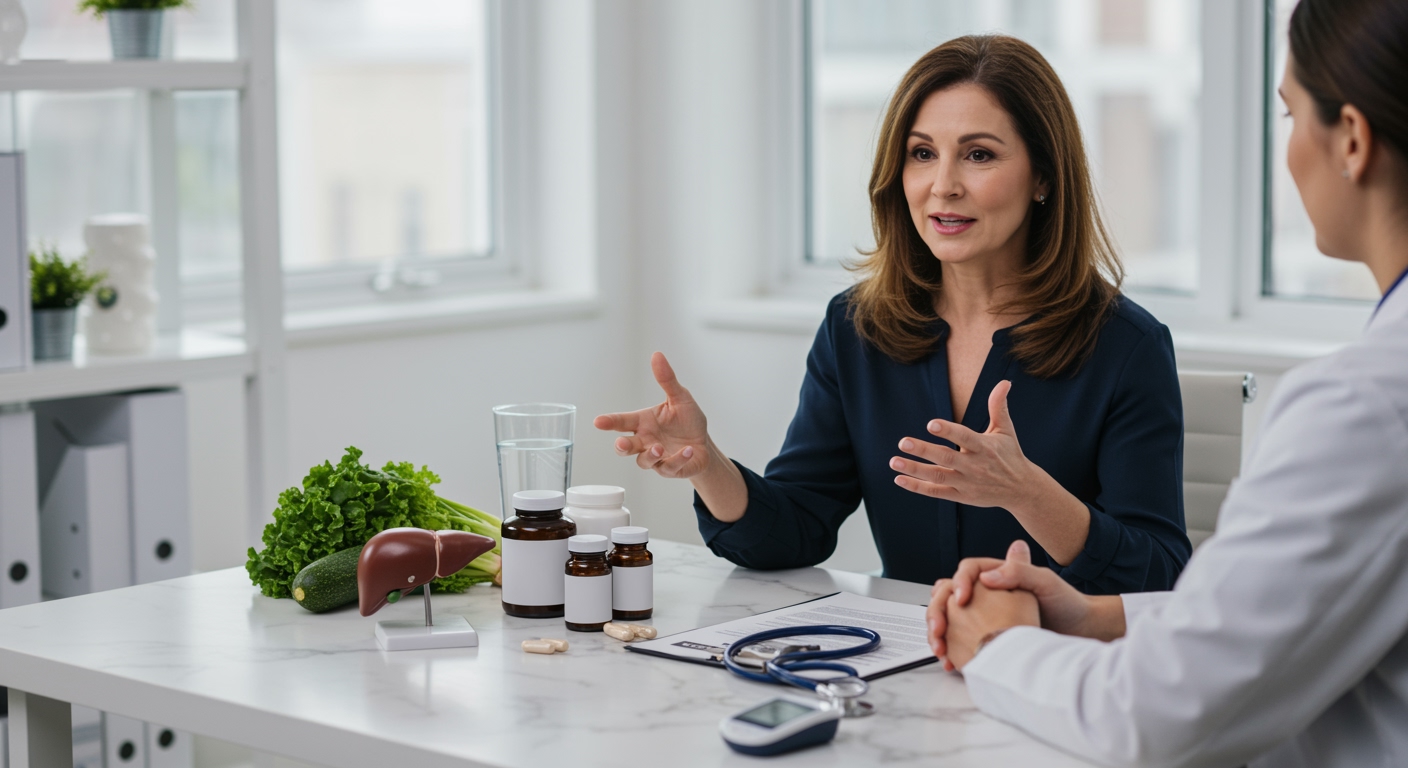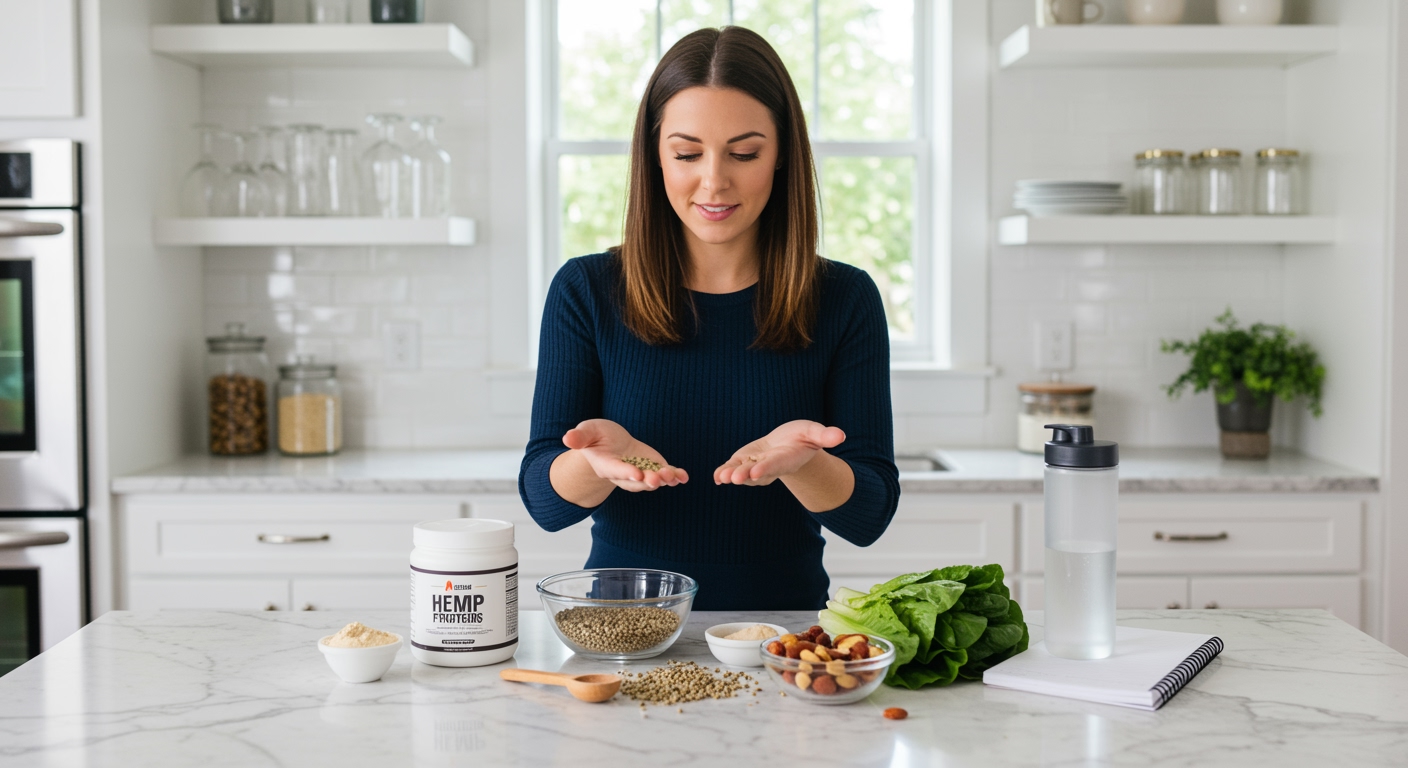✪ Key Takeaway: PCOS can cause constant headaches after eating due to insulin resistance triggering blood sugar spikes and hormonal imbalances.
Introduction
You finish your meal and within an hour, that familiar throbbing pain starts pounding in your head again.
If you have PCOS and experience constant headaches after eating, you are wondering whether these two health issues are connected in some way.
Hi, I am Abdur, your nutrition coach and today I am going to explain how PCOS can trigger headaches after meals and what you can do to find relief.
How Does PCOS Trigger Post-Meal Headaches?
PCOS creates a perfect storm of hormonal imbalances that directly affect your brain and blood vessels after eating.
The primary culprit is insulin resistance, which affects up to 70% of women with PCOS according to research.
When you eat, your blood sugar rises rapidly because your cells cannot use insulin effectively.
This blood sugar spike causes inflammation in your blood vessels and triggers the release of stress hormones like cortisol.
Your brain responds to these rapid changes by dilating blood vessels, which creates the throbbing pain you feel as a headache.
Additionally, PCOS disrupts your natural hormone cycles, including estrogen and progesterone fluctuations that can make you more sensitive to headache triggers.
✪ Fact: Women with PCOS are 50% more likely to experience frequent headaches compared to women without the condition.
What Foods Make PCOS Headaches Worse?
Refined carbohydrates and sugary foods are the biggest triggers for post-meal headaches in women with PCOS.
White bread, pasta, pastries, and sugary drinks cause your blood sugar to skyrocket within 30 minutes of eating.
This rapid spike is followed by a dramatic crash that can trigger rebound headaches 2-4 hours later.
Processed foods containing artificial sweeteners, preservatives, and high sodium levels can also worsen headache frequency.
Large meals that combine multiple trigger foods create an even stronger inflammatory response in your body.
Skipping meals or eating irregularly can make your insulin resistance worse and increase headache severity when you finally do eat.
Caffeine withdrawal from your morning coffee can also combine with post-meal blood sugar changes to create more intense headaches.
✪ Pro Tip: Keep a food and headache diary for two weeks to identify your specific trigger foods and timing patterns.
Can Improving Insulin Sensitivity Stop These Headaches?
Improving your insulin sensitivity is the most effective way to reduce PCOS-related headaches after eating.
When your cells respond better to insulin, your blood sugar stays more stable after meals, reducing the inflammatory triggers that cause headaches.
Regular physical activity, especially resistance training and walking after meals, helps your muscles use glucose more efficiently.
Studies show that even 15 minutes of walking after eating can reduce post-meal blood sugar spikes by up to 30%.
Eating protein and fiber with every meal slows down carbohydrate absorption and prevents rapid blood sugar changes.
Getting adequate sleep and managing stress levels also improve insulin sensitivity and reduce headache frequency.
Some women find that intermittent fasting or eating smaller, more frequent meals helps maintain steadier blood sugar levels throughout the day.
✪ Note: It typically takes 4-6 weeks of consistent lifestyle changes to see significant improvement in insulin sensitivity and headache patterns.
What Natural Remedies Help PCOS Headaches?
Magnesium supplementation can significantly reduce headache frequency in women with PCOS, as many are deficient in this crucial mineral.
Research suggests taking 400-600mg of magnesium daily can reduce headache days by up to 50% within three months.
Staying properly hydrated is essential because dehydration worsens insulin resistance and increases headache sensitivity.
Aim for at least 8-10 glasses of water daily, and drink an extra glass before and after meals to support digestion.
Omega-3 fatty acids from fish oil or flaxseed can reduce inflammation and help stabilize hormone levels that contribute to headaches.
Applying cold or warm compresses to your head and neck can provide immediate relief when headaches strike after eating.
Deep breathing exercises and gentle neck stretches can help reduce tension and improve blood circulation to your brain.
✪ Pro Tip: Take magnesium with dinner as it can also improve sleep quality, which helps regulate hormones and reduce morning headaches.
When Should You See a Doctor About PCOS Headaches?
You should consult your healthcare provider if headaches occur after every meal or significantly impact your daily activities.
Severe headaches accompanied by vision changes, nausea, or dizziness require immediate medical attention.
If lifestyle changes and natural remedies do not improve your headaches within 6-8 weeks, professional evaluation is necessary.
Your doctor may recommend blood tests to check your insulin levels, vitamin deficiencies, and hormone status.
Some women with PCOS benefit from prescription medications like metformin, which improves insulin sensitivity and can reduce headache frequency.
A registered dietitian can help create a personalized meal plan that stabilizes your blood sugar and reduces headache triggers.
Working with a healthcare team ensures you address both the PCOS symptoms and headache patterns for comprehensive relief.
✪ Note: Keep a detailed headache log including timing, severity, and associated symptoms to help your doctor identify patterns and treatment options.
The Bottom Line
PCOS can definitely cause constant headaches after eating through insulin resistance, blood sugar spikes, and hormonal imbalances that trigger inflammation in your brain.
Your body is not broken, it just needs the right support to function optimally, and addressing the root cause of insulin resistance will provide lasting relief from these frustrating headaches.
I would love to hear about your experience with PCOS and post-meal headaches in the comments below, so please share what has worked for you or any questions you might have.
References
At NutritionCrown, we use quality and credible sources to ensure our content is accurate and trustworthy. Below are the sources referenced in writing this article:
- PCOS Weight Loss: PCOS Headaches
- Get Lab Test: PCOS Headaches Causes Relief
- Medical News Today: PCOS and Migraine Link Treatment and Birth Control
- Endocrine Abstracts: PCOS and Headache Research





